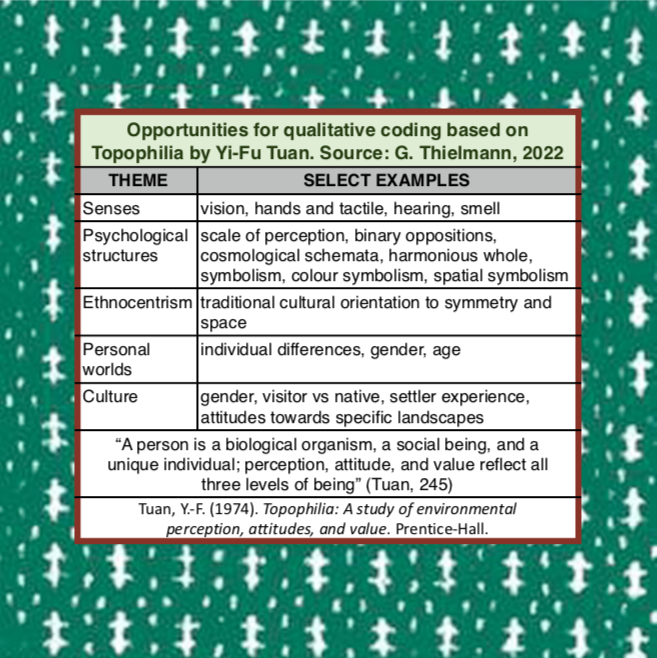What is meant by "place" in the context of the study?Place can be any teaching or learning space that has become familiar to you or to students. This study will no doubt attract educators who engage in land-based learning, field experiences, immersion in nature, and other forms of outdoor education, but there are many other places outside the classroom that form special bonds and opportunities for learning. These places are the "where" of teaching and learning, which also happens to be the title of a research study by my colleague Dr. Hart Banack at UNBC.
What does "place-responsive" mean?I see "place-responsive" as a way of being in the world that is open to the possibilities of place – for a relationship that sees land as teacher, for reciprocity with the more-than-human world, and for making connections to place as the basis of culture, language, and knowledge. Place-responsiveness is a mindset that educators bring to their learning activities, from nature play to stream monitoring, from paddling to soundwalks, from leaf pressing to urban mapping, from collecting loose parts to building community inventories, from field interviews to checking traplines. For me, it is a more finely tuned alternative term to "place-based" which can sometimes feel like the land or designated places are simply just sites where we carry out our lessons, rather than a place to learn from and with. My colleague Dr. Hilary Leighton has invested some serious time and leaf into this topic. One example of place-responsive teaching and learning is the collection of practices described in the Education Outside the Classroom "EOTC" document (see below). Another example are the beliefs described in the Six Touchstones for Wild Pedagogies document (see below).
|
What does "lifeworld" mean?
Lifeworlds are people's everyday experience, sometimes taken for granted in research, and closely connected to the senses. This is a key term in phenomenology, which is the study of consciousness and experience, or, put another way, an interpretive study of human's direct experience through perception and observation, and how these lifeworlds are the basis of meaning, in contrast to the view that meaning exists outside of our experience, minds, and bodies.
Resources and References for Place-Responsive Learning
These are some references and resources pertinent to the research study. For student activity suggestions related to place-responsive storywork, check out http://thielmann.ca/storywork.
EOTC from EEPSA
TOUCHSTONES FOR WILD PEDAGOGY
Wild Pedagogies: a movement to "renegotiate what it means to be human in relationship with the world by engaging in deep and transformational change through the use of educational practices" (https://wildpedagogies.com). Often expressed in terms of six touchstones (see graphic below).




